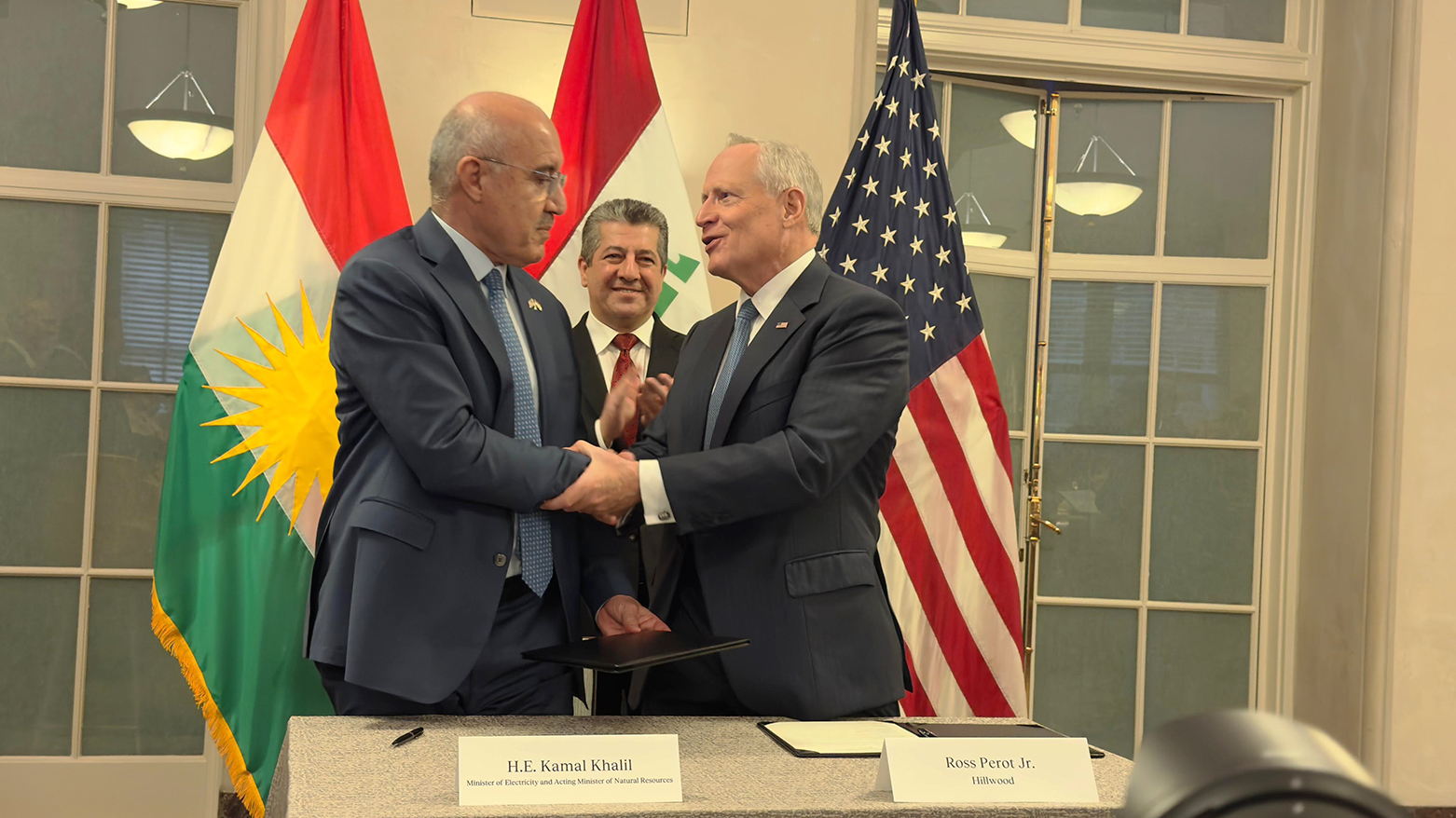‘US Firms to Develop Miran and Topkhana Fields in Strategic Energy Deal,’ Says KRG Minister
Agreements signed with U.S. firms Miran Energy and Western Zagros target production of up to 70 million scf of gas daily, aiming to boost electricity output, expand gas supply, and support Kurdistan’s cement, steel, and other industries.

ERBIL (Kurdistan24) — Kamal Mohammed, the Kurdistan Regional Government (KRG) Acting Minister of Natural Resources, announced Monday the signing of two pivotal agreements in the oil and gas sector during a press conference held in the United States. The deals are expected to strengthen Kurdistan's energy production, enhance electricity generation, and contribute to industrial growth across the region and Iraq.
The first agreement focuses on gas development and was signed with Miran Energy—a joint venture between U.S.-based HKN Energy and ONEX, a company actively engaged in the oil sector. Acting in an official capacity, Minister Mohammed stated that the agreement's goal is to develop a gas field and integrate its output into Kurdistan’s power grid, ultimately reducing dependence on imported fuels and resolving chronic electricity shortages.
“The Miran gas field contains an estimated 8 trillion cubic feet of gas,” the Minister revealed. “The initial phase will involve an 18 to 20-month exploration and assessment period, with projected production ranging between 50 to 70 million cubic feet per day. This will be scaled up later to feed into both the Kurdistan and Iraqi power networks.”
The second agreement is with Western Zagros, a U.S.-affiliated company previously active in the Kurdamir field. The deal pertains to the development of the Topkhana oil and gas field, aiming to ramp up hydrocarbon production there. According to Minister Mohammed, this will include both oil and gas output, further addressing energy demands in the region.
The Minister emphasized that these partnerships are mutually beneficial to both Kurdistan and Iraq. “Currently, Kurdistan has an installed electricity capacity of 8,189 megawatts, but actual generation is only about 4,000 to 4,500 megawatts due to fuel shortages,” he explained. “The region’s power plants require about 1.1 billion cubic feet of gas daily, but Kurdistan currently produces around 525 million cubic feet from Khor Mor and an additional 120 to 130 million from Khurmala.”
He added that these gas deals will help resolve the electricity shortfall, and the surplus gas can also fuel cement, steel, and other industries currently reliant on black oil. Importantly, gas from these fields could be extended to supply households, meeting all domestic needs with potential surplus for other uses.
Kamal Mohammed also stressed the importance of strengthening ties with the United States. “The U.S. protects its own interests,” he said. “If they have vested interests in Kurdistan, they will defend them—and that benefits the region.”
The value of the Miran and Topkhana fields is significant. Based on current market estimates, the Miran field’s 8 trillion cubic feet of gas is worth around $40 billion, while Topkhana’s 5 trillion cubic feet of gas and 9 million barrels of oil are estimated at $70 billion. Together, these assets could be worth as much as $110 billion, although these are preliminary estimates.
Minister Mohammed also addressed the long-standing issue of Kurdish oil exports, calling the delays a mix of technical, legal, and logistical challenges. Under Iraq’s budget law, Baghdad initially approved a $6 per barrel operational cost, which oil companies rejected. The rate was later revised to $16 per barrel. Although Iraq’s Ministry of Oil has shown flexibility, companies now argue that their contracts must be fully honored and their rights protected.
Highlighting the lack of federal support, the Minister disclosed that the KRG had delivered over 11.8 million barrels of oil to the Iraqi Oil Ministry over the past five months, but Kurdistan has not received a single dollar in return for company entitlements or regional dues.
Kurdistan has long sought to manage its own natural resources independently from Baghdad, with frequent disputes over revenue sharing and control. The region’s vast gas and oil reserves remain underdeveloped, partly due to political friction with Iraq’s central government and partly due to underinvestment in infrastructure. The U.S. has historically maintained strong commercial and political ties with the KRG, especially in the energy sector, and these new agreements signal a strategic effort to deepen that relationship while addressing Kurdistan’s pressing energy needs.
With the region facing electricity shortages that undermine both residential life and industrial productivity, these deals could mark a turning point—unlocking local gas potential to power homes, stimulate industries, and reinforce Kurdistan’s economic autonomy within Iraq.
Kurdistan Region Prime Minister Masrour Barzani oversees two significant energy deals with US companies
— Kurdistan 24 English (@K24English) May 19, 2025
📹Kurdistan24 pic.twitter.com/aQS94Mt6ie